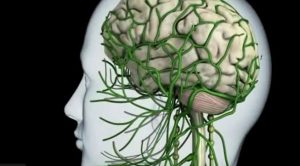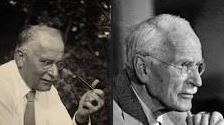Discovering the Biblical Meaning: Dreaming of Deceased Mother – A Journey Towards Comfort, Understanding, and Growth
As someone who has experienced the loss of a mother, I understand firsthand the pain and heartache that comes with it. During this challenging time, I’ve sought solace and understanding through various means, including examining the biblical meaning of dreaming of a deceased mother. By delving into these dreams, I’ve found comfort, guidance, and even potential warnings that have helped me navigate my grief and better understand my emotional state.
Throughout my journey, I’ve discovered that dreams involving a deceased mother can serve various purposes, including providing consolation, offering guidance in times of uncertainty, and even acting as cautionary signals. By interpreting these dreams through a biblical lens, I’ve been able to find solace in God’s presence and the reassurance that He is near, even in the darkest moments of grief.
Contents
If you’ve experienced dreams of a deceased mother and are seeking to understand their meaning, I invite you to explore the biblical perspectives that have brought me comfort and direction. Together, we can uncover the significance of these dreams and find strength in God’s unwavering support.
Are you curious about the meaning of your dream? Ask for the interpretation of your dream HERE!
Biblical Interpretations
Dreaming of a deceased mother can be an emotionally charged and deeply personal experience. In such moments, turning to the Bible and the insights of renowned preachers can provide guidance and understanding. By exploring biblical passages and teachings, we can gain insight into the possible meanings and significance of these dreams.
Comfort and Healing Through Dreams
The Bible offers numerous passages that emphasize God’s comfort and healing, providing solace to grieving people. Renowned preachers have also elaborated on these passages, further understanding how dreams can serve as a source of comfort.
2 Corinthians 1:3-4: A Passage on Divine Comfort
The Bible passage 2 Corinthians 1:3-4 states, „Praise be to the God and Father of our Lord Jesus Christ, the Father of compassion and the God of all comfort, who comforts us in all our troubles so that we can comfort those in any trouble with the comfort we receive from God.“
This passage emphasizes the comforting nature of God, who is described as the „Father of compassion“ and the „God of all comfort.“ It suggests that God’s presence can relieve those experiencing emotional pain and grief.
See Also: Teeth Falling Out Dream. Spiritual Meaning.
Interpreting 2 Corinthians 1:3-4 concerning Dreams About Deceased Mothers
When dreaming of a deceased mother, this passage can be a source of consolation, reminding us that God is present in our lives and capable of providing comfort during difficult times. In the context of such a dream, this passage suggests that God may be using the dream to remind us of His comforting presence, helping us cope with the emotions and grief we may be experiencing.
This passage also highlights the importance of sharing the comfort we receive from God with others who may be experiencing similar struggles. In this way, dreams about deceased mothers can serve as a reminder to support and console those around us who are also grieving as we share the comfort we have received from God.

When interpreting dreams about deceased mothers, it is essential to consider the emotional and spiritual context of the dreamer’s life. By turning to the Bible and the teachings of renowned preachers, we can gain insights and find comfort, knowing that God is present and capable of providing solace during trying times.
Exploring the Comforting Message of Psalm 147:3
Dreams about deceased mothers can stir up a range of emotions and leave us searching for meaning. By turning to the Bible, we can find solace and understanding during these challenging moments. Psalm 147:3 offers a comforting message that can be applied to our dreams and provide us with a more profound sense of peace.
Psalm 147:3: A Verse Highlighting God’s Healing Power
The Bible passage Psalm 147:3 states, „He heals the brokenhearted and binds up their wounds.“ This verse emphasizes God’s healing power, suggesting He can mend our emotional wounds and comfort those experiencing grief and loss.
Interpreting Psalm 147:3 in the Context of Dreams About Deceased Mothers
When we dream of a deceased mother, this passage can be a source of reassurance, reminding us that God is present and capable of healing our broken hearts. The imagery of God binding up wounds further underscores His active role in our healing process, offering solace and support as we navigate our emotions and grief.
In the context of such a dream, this passage implies that God may be using the dream to remind us of His healing power, providing a sense of peace during a difficult time. The dream may also serve as an invitation to lean on God, trusting in His ability to mend our emotional wounds and comfort our broken hearts.
By interpreting dreams about deceased mothers through the lens of Psalm 147:3, we can find solace in the message of God’s healing power. As we navigate the emotional journey of grief and loss, this passage reminds us that God is present and actively involved in our healing, providing comfort and peace during trying times.
Finding Guidance and Wisdom
Dreams about deceased mothers can often leave us feeling emotional and searching for meaning. One way to find solace and understanding is by turning to the Bible for guidance. Proverbs 3:5-6 offers valuable wisdom and direction, which can be applied to our dreams about deceased mothers, providing insight and reassurance during challenging times.
Proverbs 3:5-6: A Verse Encouraging Trust in God
The Bible passage Proverbs 3:5-6 states, „Trust in the Lord with all your heart and lean not on your understanding; in all your ways submit to him, and he will make your paths straight.“ This verse encourages us to trust in God’s wisdom and direction, even when we may not fully understand our circumstances.
Interpreting Proverbs 3:5-6 in the Context of Dreams About Deceased Mothers
This passage can offer guidance and reassurance when we dream of a deceased mother. It suggests that God may be providing wisdom and direction through the dream, encouraging us to trust in His guidance rather than relying solely on our understanding.
In the context of such a dream, this passage implies that our deceased mother may be a vessel for God’s wisdom, offering guidance and insight to help us navigate life’s challenges. By trusting in God’s wisdom and submitting to His direction, we can find reassurance and guidance during difficult times.
Furthermore, the promise that God will „make your paths straight“ can serve as a reminder that He is actively working in our lives, guiding us toward the right path. By trusting in God and seeking His guidance, we can find clarity and direction in our dreams about deceased mothers, even when the emotions surrounding the dream may be complex and challenging to understand.
In conclusion, interpreting dreams about deceased mothers through the lens of Proverbs 3:5-6 can provide valuable guidance and insight. This passage encourages us to trust God’s wisdom and direction, offering reassurance during trying times. By leaning on God’s understanding and seeking His guidance, we can find solace and advice in our dreams, even when faced with the emotional journey of grief and loss.
Understanding Isaiah 30:21’s Message
Dreams of deceased mothers can stir various emotions, from comfort to confusion. In the search for understanding and meaning, turning to the Bible can provide solace and guidance. Isaiah 30:21 offers a message of clarity and direction, which can be applied to our dreams about deceased mothers and help us navigate the emotional landscape of such experiences.
Isaiah 30:21: A Verse Promising God’s Guidance and Presence
The Bible verse Isaiah 30:21 states, „Whether you turn to the right or the left, your ears will hear a voice behind you, saying, ‘This is the way; walk in it.'“ This passage offers reassurance that God is always present, guiding us in the right direction, even when we are unsure of our path.
Applying Isaiah 30:21 to Dreams About Deceased Mothers
When examining dreams about deceased mothers through the lens of Isaiah 30:21, the verse suggests that God may be offering guidance and direction through these dreams. The voice we hear, whether it is our mother’s or another comforting presence, can be interpreted as a manifestation of God’s guidance, urging us to follow the right path.
In this context, dreaming of a deceased mother might serve as a reminder that we are not alone in our journey and that God’s presence is always with us, offering direction and support. The dream could symbolize God’s way of providing comfort and reassurance, reminding us that He is guiding us even in times of grief and loss.
Moreover, Isaiah 30:21 encourages us to be attentive to God’s voice in our lives, including through dreams. By paying attention to the messages conveyed in our dreams about deceased mothers, we can gain insight into the guidance God is providing, helping us to navigate life’s challenges and uncertainties.
In summary, interpreting dreams about deceased mothers through the perspective of Isaiah 30:21 can bring clarity and direction to our lives. The verse reminds us that God is always present, guiding us through both joyous and challenging times. By being open to His guidance and seeking His direction, we can find solace, understanding, and the strength to move forward during difficult periods of grief and loss.
Dreams as a Source of Warning
Dreams can serve various purposes, and sometimes they may come as a warning or cautionary message. Matthew 2:12-13 is an example from the Bible where a dream acts as a means of caution, urging the dreamer to take a particular course of action. Applying this concept to dreams about deceased mothers can help us explore the potential warnings or guidance they may contain.
Matthew 2:12-13: Divine Warnings in Dreams
In the biblical account, Matthew 2:12-13 narrates the story of wise men who were warned in a dream not to return to King Herod after visiting baby Jesus. The passage reads, „And having been warned in a dream not to go back to Herod, they returned to their country by another route. When they had gone, an angel of the Lord appeared to Joseph in a dream. ‘Get up,’ he said, ‘take the child and his mother and escape to Egypt. Stay there until I tell you, for Herod is going to search for the child to kill him.'“
This story demonstrates the potential for dreams to carry cautionary messages and provide guidance on how to avoid danger or take necessary action.
Interpreting Dreams of Deceased Mothers as Warnings or Cautionary Messages
In the context of dreams about deceased mothers, it is possible that these dreams could also contain warnings or guidance for the dreamer. For example, the appearance of a dead mother in a dream might symbolize the need to pay attention to a particular aspect of one’s life or be mindful of a specific decision or situation.
If we want to interpret these dreams, it is essential to reflect on the details of the dream and the emotions experienced during it. Consider the interactions with the deceased mother and any messages or advice she may have shared. These details can provide insight into the potential warning or guidance the dream may convey.
Furthermore, it is crucial to remain open to the possibility that the dream is not necessarily a literal warning but a metaphorical or symbolic message. For instance, the deceased mother might represent a part of oneself that needs attention or an aspect of one’s life that requires caution and care.
In summary, approaching dreams about deceased mothers through the lens of Matthew 2:12-13 can help us recognize and understand potential warnings or guidance they may contain. By carefully reflecting on the details of the dream and the emotions experienced, we can derive valuable insights and take appropriate action to navigate life’s challenges and uncertainties.
Acts 16:9-10: Dreams as a Source of Direction
Acts 16:9-10 showcases how dreams can provide direction, guiding individuals in their life journey. By examining this passage and applying its insights to the dreams of deceased mothers, we can better understand the potential guidance or meaning these dreams may hold.
Understanding Acts 16:9-10 and its Implications for Dreams
In Acts 16:9-10, the apostle Paul experiences a vision in his dream, guiding him to change the course of his missionary journey. The passage reads, „During the night, Paul had a vision of a man of Macedonia standing and begging him, ‘Come over to Macedonia and help us.’ After Paul had seen the vision, we got ready at once to leave for Macedonia, concluding that God had called us to preach the gospel to them.“
This dream serves as a directive for Paul, leading him to bring the gospel to a new region. It demonstrates how dreams can provide guidance and direction, shaping one’s decisions and actions.
Potential Guidance and Meaning
When it comes to dreams of deceased mothers, it is essential to examine the dream’s context, the interactions with the mother, and any emotions experienced during the dream. By doing so, we can better understand these dreams’ potential guidance or meaning.
In some cases, a deceased mother in a dream might symbolize the need to pay attention to a specific aspect of one’s life, similar to how Paul’s dream led him to focus on a new mission. Alternatively, a deceased mother may represent wisdom or insight that can help navigate life’s challenges.
To understand the potential guidance or meaning of these dreams, consider the following questions:
- What was the overall context of the dream, and how did it make you feel?
- What was the interaction with the deceased mother like, and what emotions did it evoke?
- Did the dead mother share any messages or advice?
Reflecting on these questions can help unveil the guidance or meaning within the dream, allowing the dreamer to understand better how it may apply to their own life.
Embracing the Wisdom and Guidance of Dreams
Dreams can serve as a powerful source of guidance and direction, as evidenced by Acts 16:9-10. When we dream about our deceased mothers, it is crucial to approach these dreams with an open mind and willingness to explore the potential wisdom they may contain.
By examining the dream’s context, interactions, and emotions, we can better understand the guidance or meaning the dream may hold. In doing so, we can embrace the wisdom and direction provided by our dreams, leading us to make more informed decisions and navigate life’s challenges with greater confidence.
Biblical Passages Relevant to Dreaming of a Deceased Mother
Dreams of a deceased mother can be both comforting and disturbing. They often leave individuals searching for meaning and guidance to navigate their grief. The Bible offers passages that may provide solace and understanding when grappling with these dreams.
Psalm 23:4: Comfort and Reassurance in Grief
Psalm 23:4 is a powerful verse that can be particularly relevant to those grieving the loss of a loved one. It reads, „Even though I walk through the darkest valley, I will fear no evil, for you are with me; your rod and your staff, they comfort me.“
This passage conveys that God is with us, providing comfort and reassurance even in the darkest times. When applied to dreams of a deceased mother, it can offer solace and guidance during grief.
Interpretation and Application of Psalm 23:4 to Dreams of a Deceased Mother
When dreaming of a deceased mother, it’s crucial to consider the emotions experienced during the dream, the interactions with the mother, and the overall context of the dream. These elements can help to interpret the dream and better understand its potential significance.
To apply Psalm 23:4 to dreams of a deceased mother, consider the following aspects:
- God’s presence and reassurance: The dream may serve as a reminder that God is present even amid grief, providing comfort and relief. This understanding can help ease the pain of loss and allow for healing.
- A source of comfort: Dreams of a deceased mother might offer a sense of connection with the mother even after her passing. This connection can bring solace and help individuals navigate their grief.
- A reminder to lean on faith: The dream may serve as a reminder to rely on one’s faith during challenging times. Psalm 23:4 can guide how to seek comfort and reassurance in God’s presence, even in the face of loss.
Finding Meaning and Guidance in Dreams of a Deceased Mother
 If you dream about your deceased mother, it’s essential to approach the dream with an open mind and a willingness to explore its potential significance. Reflecting on the emotions, interactions, and context of the dream can help unveil its meaning and provide guidance on how to cope with grief.
If you dream about your deceased mother, it’s essential to approach the dream with an open mind and a willingness to explore its potential significance. Reflecting on the emotions, interactions, and context of the dream can help unveil its meaning and provide guidance on how to cope with grief.
Applying the insights from Psalm 23:4 can offer comfort and reassurance, reminding us that God is present even in the darkest times. By embracing this understanding, we can find solace in our dreams and navigate the challenging grief journey with greater confidence and hope.
Dreaming of a deceased mother can evoke a range of emotions and provoke questions about the dream’s significance. The Bible contains passages that may offer insights and guidance in understanding these dreams. One such passage is Job 33:14-16, which discusses God’s communication through dreams.
Job 33:14-16: God’s Communication Through Dreams
Job 33:14-16 states, „For God does speak—now one way, now another—though no one perceives it. In a dream, in a vision of the night, when deep sleep falls on people as they slumber in their beds, he may speak in their ears and terrify them with warnings.“ This passage suggests that God communicates with us through dreams, often providing guidance or warnings in times of need.
Interpretation and Application of Job 33:14-16 to Dreams of a Deceased Mother
To interpret and apply Job 33:14-16 to dreams of a deceased mother, consider the following aspects:
- Understanding the message: Dreams of a deceased mother may contain statements from God. Reflect on the dream’s content and context, and try to discern if a specific message or guidance is being offered.
- Looking for warnings or guidance: If the dream includes a warning or advice from the deceased mother, consider how this might relate to your current situation or challenges. These messages could provide valuable insights and direction for your life.
- Embracing the connection: Dreams of a deceased mother can serve as a reminder of the relationship between the living and the dead. This connection may provide comfort and a sense of reassurance, allowing individuals to feel supported even after their mother’s passing.
H4: Finding Meaning and Guidance in Dreams of a Deceased Mother
 If you dream about your deceased mother, reflect on the dream’s content and context, looking for potential messages from God. Applying the insights from Job 33:14-16 can help uncover any guidance or warnings embedded within the dream, offering valuable direction in your life.
If you dream about your deceased mother, reflect on the dream’s content and context, looking for potential messages from God. Applying the insights from Job 33:14-16 can help uncover any guidance or warnings embedded within the dream, offering valuable direction in your life.
Remember, dreams can be a means of communication with God, and understanding their significance is essential in finding meaning and guidance. By interpreting and applying the teachings from Job 33:14-16, you can better navigate the complexities of life and draw comfort from the enduring connection with your deceased mother.
When dealing with the loss of a mother, many people find comfort in biblical passages that offer guidance and consolation. One such passage is Psalm 34:18, which speaks about God’s closeness to the brokenhearted.
Psalm 34:18: God’s Closeness to the Brokenhearted
Psalm 34:18 says, „The Lord is close to the brokenhearted and saves those who are crushed in spirit.“ This passage emphasizes that God is near those who experience emotional pain and heartache and provides comfort and support during difficult times.
Interpretation and Application of Psalm 34:18 to Dreams of a Deceased Mother
To interpret and apply Psalm 34:18 to the dreams of a deceased mother, consider the following aspects:
- Finding solace in God’s presence: When dreaming of a deceased mother, understand that God is near and providing comfort during challenging times. These dreams can serve as a reminder of God’s loving presence and support.
- God’s role in healing: Psalm 34:18 highlights that God is a source of healing for those who are brokenhearted. In dreams of a deceased mother, consider the possibility of God offering healing and restoration to help cope with the loss.
- Spiritual growth through adversity: Difficult experiences, for example, when we lose a loved one, can lead to spiritual growth. Embrace the opportunity to grow closer to God and find strength in His presence during times of grief.
Embracing God’s Presence in Dreams of a Deceased Mother
 Dreams of a deceased mother can evoke strong emotions and prompt questions about their significance. By interpreting and applying the teachings from Psalm 34:18, you can find comfort in knowing that God is close to the brokenhearted and offers support during challenging times.
Dreams of a deceased mother can evoke strong emotions and prompt questions about their significance. By interpreting and applying the teachings from Psalm 34:18, you can find comfort in knowing that God is close to the brokenhearted and offers support during challenging times.
When you dream about your deceased mother, remember that God is near, providing solace and healing. Embrace the opportunity to grow spiritually and lean on God’s unwavering support as you navigate the complexities of life and the emotions accompanying the loss of a loved one.
Dreaming deceased mother in the manner of Carl Jung.
From Carl Jung’s analytical psychology perspective, dreaming of a deceased mother could be interpreted as a manifestation of the dreamer’s unconscious, which is trying to process unresolved emotional conflicts or feelings related to the mother’s passing or the relationship with the mother.
Jung believed dreams were symbolic expressions of the unconscious and offered insights into the dreamer’s psychological state and inner world. In the case of dreaming of a deceased mother, the mother may symbolize aspects of the dreamer’s psyche, such as the nurturing and caring aspects of the self or the sense of loss and grief that may be present in the dreamer’s emotional life.
The image of the deceased mother in the dream may manifest the dreamer’s psyche as it grapples with the emotions and experiences associated with the mother’s passing. The mother may represent a complex set of emotions, memories, and experiences, which the dreamer is trying to integrate and make sense of.
Jung would suggest that the dreamer engages in the process of active imagination, in which they explore the meaning and symbolism of the dream and seek to integrate the unconscious contents of the dream into their conscious life. This process may involve journaling, drawing, or engaging in dialogue with a therapist or trusted confidant to gain a deeper understanding of the dream and its relevance to the dreamer’s life. By working with the dream in this way, the dreamer may gain insights into their psychological state and move towards greater self-awareness and healing.
Dreaming deceased mothers in the manner of Freud.
From the perspective of Sigmund Freud’s psychoanalytic theory, dreaming of a deceased mother could manifest the dreamer’s unconscious desires, conflicts, or fears related to the mother or the relationship with the mother.
Freud believed that dreams were a reflection of the unconscious mind and contained repressed or forbidden impulses and desires that we could not express in waking life. When dreaming of a deceased mother, the mother may represent a complex set of emotions, memories, and experiences that the dreamer may not fully process or understand.
According to Freud, the images and symbols in the dream may represent repressed wishes or fears related to the mother or the relationship with the mother. For example, the dreamer may be experiencing guilt or shame related to unresolved conflicts with the mother or struggle with feelings of abandonment or loss. The dream may also reflect unresolved sexual or aggressive impulses toward the mother or others, which the dreamer may struggle to come up to terms with.
Freud would suggest that the dreamer engages in the process of free association, in which they explore the thoughts and emotions that come up in response to the dream to gain a deeper understanding of the unconscious contents of the dream. This process may involve exploring the dream with a therapist or trusted confidant and using techniques such as dream analysis, hypnosis, or free association to gain insights into the underlying emotional conflicts or desires that may be present in the dreamer’s psyche. By working with the dream in this way, the dreamer may gain greater self-awareness and insight into their psychological state and move towards more remarkable healing and integration of their unconscious mind.

Dreaming deceased mother in the manner of Rudolf Steiner.
From the perspective of Rudolf Steiner’s spiritual philosophy, dreaming of a deceased mother could be interpreted as a manifestation of the dreamer’s spiritual journey and the workings of the spiritual world.
Steiner believed that dreams were a manifestation of the soul’s journey through the spiritual realms and contained symbolic and archetypal images that reflected the dreamer’s spiritual path. When dreaming of a deceased mother, the mother may represent a guiding force or spiritual presence, working to help the dreamer on their spiritual journey.
According to Steiner, the images and symbols in the dream may be interpreted as signs and messages from the spiritual world, which are intended to guide the dreamer toward greater self-awareness and spiritual development. The mother may be seen as a spiritual guide or mentor working to help the dreamer integrate their spiritual insights and experiences.
Steiner would suggest that the dreamer engages in spiritual reflection, in which they explore the symbolic and archetypal meanings of the dream and seek to understand its relevance to their spiritual path. This process may involve prayer, meditation, or contemplation and may involve seeking guidance from trusted religious or spiritual advisors.
By working with the dream this way, the dreamer may gain more significant insights into their spiritual journey and move towards a more profound sense of meaning and purpose. The dream may offer guidance and support and help the dreamer connect with their spiritual nature and the workings of the spiritual world.
Dreaming deceased mother in the manner of Karl Marx.
As a social theorist, Karl Marx would likely interpret dreaming of a deceased mother in the context of the dreamer’s social and economic circumstances. Marx believed that social and economic factors played a significant role in shaping human consciousness and behavior and that dreams were no exception.
From a Marxist perspective, dreaming of a deceased mother may reflect the dreamer’s social and economic status. It may be related to their experiences of loss, grief, and alienation. The mother figure, in particular, may represent the lost or alienated aspects of the dreamer’s social and economic identity and may be seen as a symbol of the dreamer’s desire for connection and belonging.
Marx would also view the dream as a manifestation of the dreamer’s unconscious mind, which is trying to process and make sense of their experiences of loss and grief. In this sense, the dream reflects the dreamer’s inner struggles and conflicts and their efforts to come to terms with the social and economic forces that have shaped their lives.
The Marxist interpretation of dreaming of a deceased mother emphasizes the importance of understanding the dream in the context of the dreamer’s social and economic circumstances. The mother figure, in particular, may be seen as a symbol of the dreamer’s desire for connection and belonging and may offer insights into the dreamer’s experiences of loss and grief. By understanding the social and economic factors that have shaped the dreamer’s life, the dreamer may gain greater insight into their psychological state and move towards more significant healing and integration.
Additional points of view.
In addition to the perspectives of Carl Jung, Sigmund Freud, and Rudolf Steiner, there are many other ways to interpret dreaming of a deceased mother, depending on the individual’s personal beliefs, cultural background, and spiritual orientation. Here are a few additional points of view:
- Shamanic interpretation: In some shamanic traditions, dreaming of a deceased mother may be seen as a journey into the spirit world, in which the dreamer can connect with the wisdom and guidance of their ancestors. The mother may be seen as a wise and powerful spirit guide working to help the dreamer on their spiritual growth and transformation path.
- Mythological interpretation: In many mythological traditions, the mother figure represents a powerful archetype of nurturing, protection, and guidance. Dreaming of a deceased mother may be seen as a symbolic encounter with this archetype, offering the dreamer comfort, support, and wisdom.
- Intuitive interpretation: From an intuitive or psychic perspective, dreaming of a deceased mother may be seen as a manifestation of the dreamer’s psychic abilities, such as clairvoyance or telepathy. The mother may be seen as a spiritual presence trying to communicate with the dreamer and may offer insights or messages related to the dreamer’s personal or spiritual life.
- Cultural interpretation: Dreaming of a deceased mother may have different meanings depending on the dreamer’s cultural background. For example, in some cultures, dreaming of a deceased mother may be seen as a sign of good luck or spiritual blessings, while in others, it may be seen as a warning of impending danger or misfortune.
The interpretation of dreaming of a deceased mother can be highly personal and subjective and may depend on a wide variety of factors, including the dreamer’s personal beliefs, cultural background, and spiritual orientation.
Conclusion
In conclusion, dreaming of a deceased mother can be a powerful emotional experience and hold deep personal and spiritual significance. As we have explored in this conversation, there are various interpretations of this type of dream, from spiritual and mythological perspectives to psychological and philosophical ones.
By considering these different interpretations, we gain a deeper understanding of the mother figure’s symbolic and archetypal meanings and the potential messages and insights that these dreams can offer. Whether we approach this type of dream from a spiritual or psychological perspective, the common thread is the importance of reflecting on the personal significance of the dream and its potential impact on our personal and spiritual growth.
If you have had a dream of a deceased mother, we encourage you to explore its potential meanings and seek out support as needed. We also invite you to share this conversation on your social networks and to continue the conversation with others who may have had similar experiences or insights.
Dreams offer a window into the deeper aspects of our being, and by exploring their meanings and symbolism, we gain a greater understanding of ourselves and our place in the world. Thank you for joining us in this conversation.

Margarita Alexieva is an editor in numerous health departments of various national and regional daily and weekly newspapers and magazines. She has been in journalism since 1992, and in recent years she has been mainly focused on the topics of news, healthcare and medicine.

I think that the interpretation of dreaming of a deceased mother from a Marxist perspective overlooks the spiritual and emotional dimensions of the dream experience. Dreams are not purely determined by social and economic factors and may hold personal and symbolic significance that we cannot reduce to a materialist framework.
The interpretation of the mother figure as a symbol of the dreamer’s desire for connection and belonging is overly simplistic. Dreams are often more complex and multi-layered than that, and the mother figure may represent a range of emotions and experiences that are not easily reduced to a single symbolic meaning.
I find the spiritual interpretations too mystical and disconnected from reality. As a scientist, I believe dreams are a product of the brain’s neural activity and that any meaning or significance attributed to them is purely subjective and open to interpretation.
I disagree with the interpretation from a cultural perspective. In my culture, dreaming of a deceased mother is seen as a bad omen, indicating that the dreamer may be in danger. The mother figure is often seen as a warning sign, rather than a source of guidance or protection.
I don’t think the dream reflects unresolved emotional conflicts or grief. Dreaming of a deceased mother has been a positive and uplifting experience, bringing me a sense of comfort and connection with my loved one.